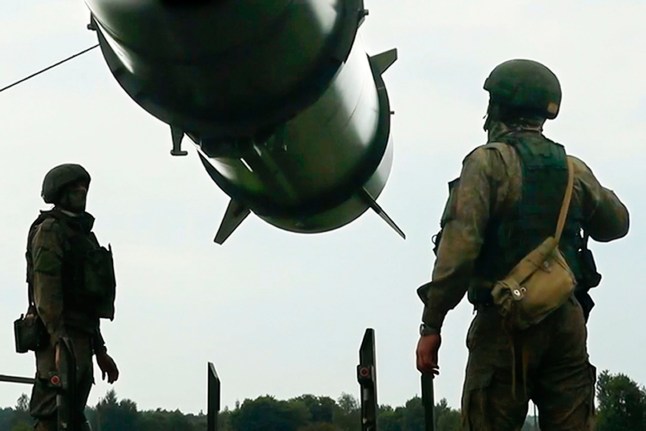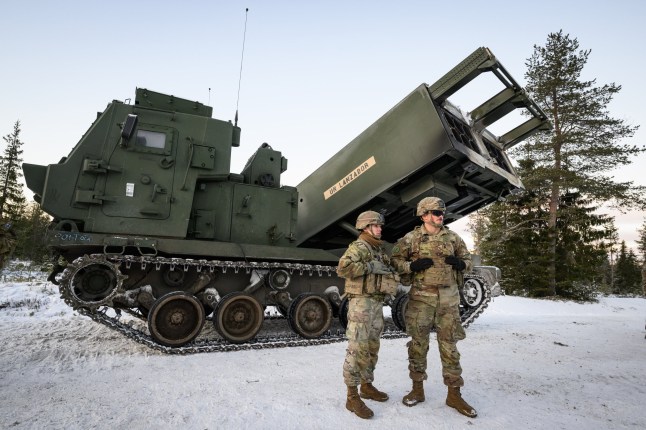To view this video please enable JavaScript, and consider upgrading to a web
browser that
supports HTML5
video
Russia could be on the brink of restarting nuclear bomb testing for the first time since the Cold War.
Several high-ranking politicians have visited Novaya Zemlya, the remote Arctic islands where the Soviet Union once tested its largest nuclear bombs—including the Tsar Bomba, the most powerful weapon ever detonated.
Among them was Lieutenant General Andrey Gurulev, who posted a video from the site declaring that Russia was ‘combat ready.’
Gurulev is one of several senior officials pressuring Putin to restart nuclear tests there.
They argue that such a show of force would send a message that Russia won’t compromise over Ukraine.
Rear Admiral Andrei Sinitsyn, who directs the facility, is among them.
Last year, he claimed the site was fully prepared for nuclear tests, waiting only on Putin’s order.
Professor Stephen Hall told Metro: ‘Russia needs to prove that it still has a nuclear arsenal, particularly following Ukraine’s drone strike.
‘Putin needs to prove he is battle ready because in his eyes Russia is already at war with the West.’
At the same time as the visit, propagandist Vladimir Soloyov warned viewers that ‘we are closer to nuclear Armageddon now than during the Cuban missile crisis.’

In the UK, the government is being urged to come up with a national defence plan, including air raid drills and testing of war sirens.
Ex-military chief, Sir Richard Barrons told the i Paper that people from all aspects of life have to prepare for missile strikes.
He said: ‘There is a clear, present risk – particularly as president Putin does see himself as being at war with the West.
‘The homeland is again on the pitch – it’s not got some magic immunity from war, in the same way that Kyiv doesn’t… Air and missile attacks will cause civilian casualties in potentially very large numbers.’
He also said that the UK could learn from countries like Finland and Sweden, which have developed plans for ‘total defence.’
‘These are comprehensive models where the entire population feels part of the defence effort. The UK is just not anywhere near that,’ he added.
Barrons co-wrote the government’s strategic defence review – which recommended sweeping changes including a focus on new technology and reaching 3% GDP defence spending.
Presenting the review, Prime Minister Keir Starmer said: ‘We will never gamble with our national security.’
One of the recommendations from the defence review was that the British Army will ‘increase lethality’ over the next decade.
But Professor Hall pointed out some flaws in Barrons’ argument of preparing the UK for missile attacks.

‘We should prepare for missile attacks but this is somewhat difficult for the UK to do,’ he said.
‘We are such a tiny island that one nuclear missile could wipe out the entirety of the country – that’s the problem.
‘Whereas Finland is geographically bigger and less densely populated, it’s had years of experience preparing itself for a nuclear attack.’
One way the UK is preparing is by sending military officials to Finland to support the country as it faces a build up of Russian troops on its eastern border.
Finland’s military intelligence has said it expects there to be as many as 50,000 new Russian soldiers to be stationed at the border.
The Ministry of Defence (MOD) said UK military officials would work with both Finland and Sweden to ‘strengthen the alliance’s deterrence posture on the eastern flank.’
Get in touch with our news team by emailing us at webnews@metro.co.uk.
For more stories like this, check our news page.